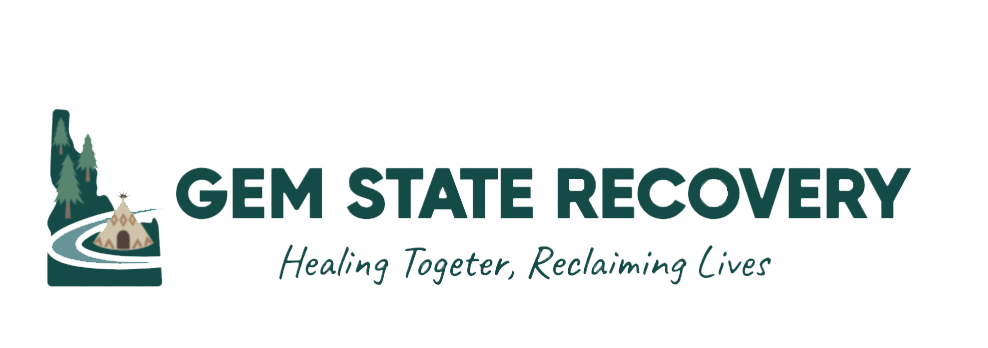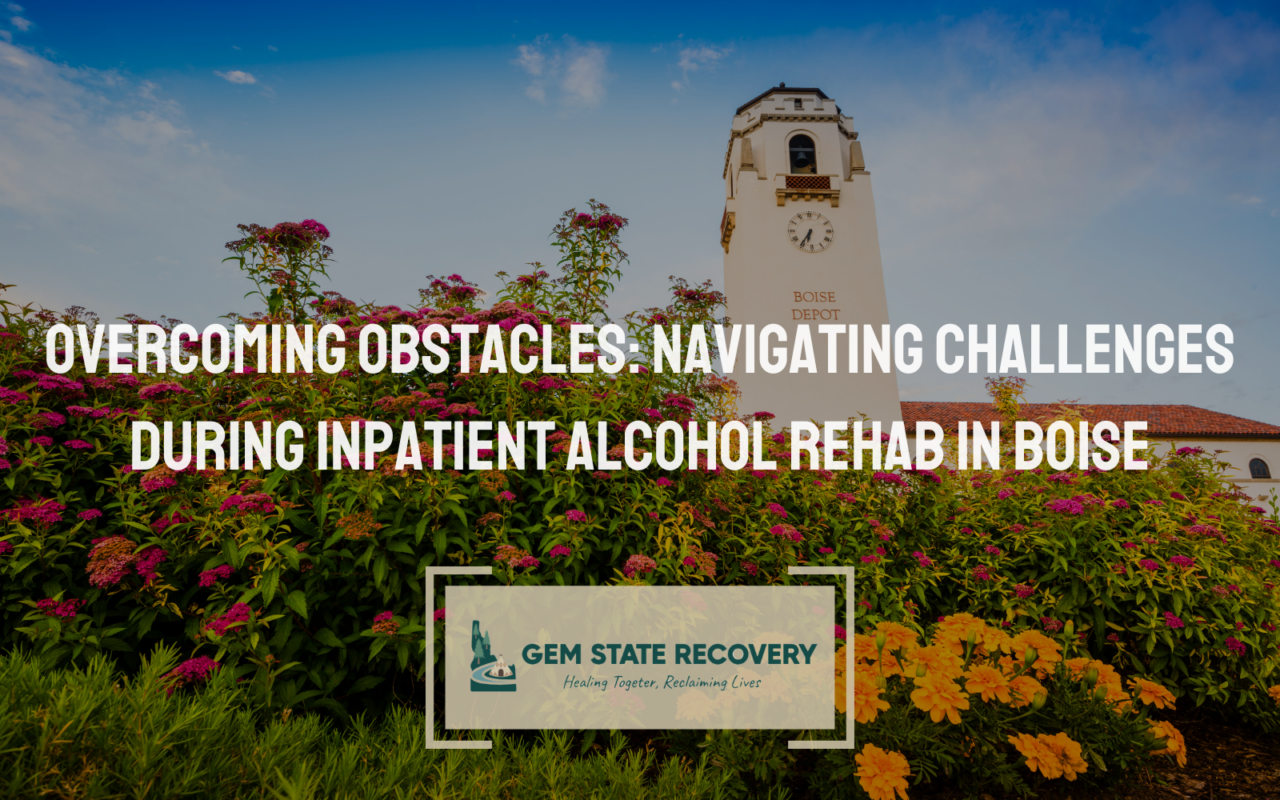Alcohol addiction is a pervasive issue affecting millions worldwide, and finding effective treatment is crucial for recovery and long-term sobriety. Inpatient alcohol rehab is one of the most comprehensive options available, providing a structured environment and constant care. Inpatient alcohol rehab in Boise offers these same benefits, ensuring individuals receive the necessary support. However, the decision to enter rehab is just the beginning of a challenging but rewarding journey. Navigating the obstacles that arise during inpatient rehab requires courage, resilience, and the right strategies.
In this blog post, we will guide you through the various challenges you may face during inpatient alcohol rehab in Boise and provide practical tips and strategies to help you overcome them. Whether you are seeking help for yourself or a loved one, understanding these challenges and knowing how to tackle them can make a significant difference in the recovery process.
Understanding Inpatient Alcohol Rehab
What is Inpatient Alcohol Rehab?
Inpatient alcohol rehab in Boise involves staying at a treatment facility full-time, where individuals receive around-the-clock care and support. This comprehensive approach ensures that patients are constantly monitored and have immediate access to medical and psychological assistance. Unlike outpatient programs where patients return home after treatment sessions, inpatient rehab provides a controlled and immersive environment aimed at eliminating distractions and focusing entirely on recovery. The structured setting includes a variety of therapies, such as individual counseling, group sessions, and educational workshops, all designed to equip patients with the tools they need for long-term sobriety and to address the underlying causes of their addiction. Additionally, patients can benefit from a supportive community of peers who are going through similar experiences, fostering a sense of camaraderie and mutual encouragement.
Benefits of Inpatient Rehab
Choosing an inpatient program offers several benefits:
- 24/7 Support: Continuous care from medical professionals and counselors ensures that patients receive immediate help whenever needed. This round-the-clock support is crucial for addressing any emergencies or crises that may arise, providing peace of mind for both patients and their families.
- Structured Environment: A well-organized schedule of therapies and activities helps create a routine that supports recovery. This structure includes various forms of therapy, such as cognitive-behavioral therapy, group therapy, and recreational activities, all designed to promote mental and physical well-being.
- Immersive Experience: Being surrounded by peers who are also on the path to recovery fosters a sense of community and mutual support. This shared journey allows individuals to build meaningful connections, share experiences, and encourage one another, significantly enhancing the overall recovery process.
The Importance of Choosing the Right Facility
Personalized Care
Selecting a rehab facility that aligns with individual needs is crucial. The right facility can significantly influence the recovery experience and outcomes. Factors to consider include:
- Location: The proximity to loved ones or a serene setting can significantly enhance your comfort and focus during treatment. Being close to family and friends can provide emotional support, while a peaceful environment can help you relax and concentrate on your recovery. When searching for inpatient alcohol rehab in Boise, consider facilities that offer both convenient locations and tranquil surroundings.
- Treatment Philosophy: Different facilities that provide inpatient alcohol rehab in Boise, may have varying approaches to treatment, such as holistic, evidence-based, or alternative therapies. Choose a facility with a treatment philosophy that aligns with your beliefs and needs to ensure you feel comfortable and supported throughout your journey.
- Available Therapies: It’s essential to ensure the facility offers a range of therapies that cater to your specific requirements, including individual and group therapy, medical detox, and complementary treatments like art or music therapy. Inpatient alcohol rehab in Boise should provide a diverse treatment plan to address multiple aspects of your health and well-being.
- Staff Credentials: Qualified and experienced staff members, including doctors, therapists, and support personnel, can provide better care and support. Look for credentials such as licenses, certifications, and years of experience at inpatient alcohol rehab in Boise to ensure you receive the highest quality of care.
Facility Features
A good facility should offer:
- Comprehensive Treatment Plans: These are carefully customized to address the unique needs and challenges of each individual, ensuring that every patient receives the most effective care tailored to their specific situation.
- Amenities and Activities: Facilities that offer a wide range of recreational activities, such as fitness centers, swimming pools, and arts and crafts, along with comfortable living conditions, can significantly enhance the rehab experience, making it more pleasant and conducive to recovery.
- Family Involvement: Programs that incorporate family therapy sessions can help strengthen the support system, fostering better communication and understanding among family members, which is crucial for sustained recovery and long-term success.
Common Challenges during Inpatient Alcohol Rehab
Withdrawal Symptoms
One of the first and most daunting challenges faced during rehab is dealing with withdrawal symptoms. These symptoms can range from mild to severe and may include headaches, nausea, anxiety, and insomnia. In some cases, individuals may experience more intense symptoms such as tremors, sweating, or even seizures. Understanding and preparing for these symptoms is essential for managing them effectively. Medical supervision and support from healthcare professionals can make a significant difference in navigating this difficult phase.
Cravings
Persistent cravings for alcohol can be a significant hurdle during the rehabilitation process. These cravings can be intense and overwhelming, often triggered by various factors such as stress, certain environments, social situations, or even specific memories and sights associated with drinking. Developing coping strategies, such as engaging in physical activities, practicing mindfulness, or seeking support from therapy groups, can help manage these cravings and reduce the risk of relapse.
Emotional Triggers
Rehabilitation often brings buried emotions to the surface, which can be overwhelming and challenging to deal with. Emotional triggers may include feelings of guilt, shame, sadness, or anger, which need to be addressed for a successful recovery. Therapy and counseling at an inpatient alcohol rehab in Boise can provide a safe space to explore and process these emotions. Building a strong support network of family, friends, and fellow recovering individuals can also be invaluable in managing emotional triggers and staying on the path to recovery.
Overcoming Obstacles: Tips and Strategies
Seek Support from Fellow Peers
Importance of Peer Support
Connecting with others who are going through similar experiences can provide a profound sense of belonging and understanding. Peers offer empathy and shared experiences that can significantly ease the rehab process, creating a supportive environment where individuals feel less isolated in their journey toward recovery. This is especially true in inpatient alcohol rehab in Boise.
Group Therapy
Participating in group therapy sessions allows individuals to share their personal stories, learn from others, and gain different perspectives on coping strategies. These sessions foster a sense of community and mutual support, which can be crucial for emotional healing and developing effective techniques to manage challenges.
Recreational Activities
Engaging in recreational activities with other patients can build camaraderie and provide a healthy distraction from cravings and emotional stress. Activities such as sports, art, or group outings not only promote physical well-being but also enhance social interaction and improve overall mental health. By participating in these activities, individuals can discover new interests and hobbies that contribute positively to their recovery process.
Utilize Therapeutic Techniques
Cognitive-Behavioral Therapy (CBT)
CBT is a widely used technique in inpatient alcohol rehab in Boise that helps individuals recognize and change negative thought patterns and behaviors. By identifying these patterns, individuals can develop healthier ways of thinking and responding to life’s challenges. CBT provides tools to manage stress, anxiety, and triggers effectively, empowering individuals to maintain sobriety and improve their overall mental health.
Mindfulness-Based Practices
Mindfulness practices, such as meditation and yoga, can help individuals stay present and manage stress. These practices encourage a non-judgmental awareness of thoughts and feelings, aiding in emotional regulation. By regularly practicing mindfulness, individuals can cultivate a greater sense of inner peace and resilience, which supports their journey towards recovery and long-term well-being.
Tailored Therapeutic Approaches
Personalized therapy plans that consider individual challenges and strengths are more effective. Therapists may combine various techniques to address specific needs. This tailored approach ensures that the therapy is relevant and effective for the individual, maximizing the chances of successful recovery. By focusing on personal goals and preferences, tailored therapeutic approaches help individuals feel more engaged and motivated in their treatment.

Communicate with Your Treatment Team
Open Communication
Effective communication with counselors, therapists, and medical staff is vital for successful rehabilitation, especially in inpatient alcohol rehab in Boise. Expressing concerns and asking for support can lead to adjustments in the treatment plan that better suit individual needs. Open communication ensures that patients feel heard and understood, which can significantly enhance their overall experience and outcomes.
Building Trust
Establishing a trusting relationship with the treatment team enhances the rehab experience. Trust encourages honesty and openness, which are crucial for addressing underlying issues and fostering a safe environment. When patients trust their caregivers, they are more likely to engage fully in the treatment process, share their true feelings, and comply with the recommended therapy and medication plans.
Regular Check-Ins
Regularly scheduled check-ins with the treatment team help monitor progress and make necessary adjustments to the treatment plan. These check-ins provide opportunities to celebrate milestones, address any setbacks, and ensure that the treatment approach remains effective and aligned with the patient’s evolving needs. Consistent follow-ups can also motivate patients by showing them the tangible progress they are making, thereby boosting their confidence and commitment to the rehabilitation process.
Stay Focused on Recovery Goals
Setting Goals
Setting clear recovery goals provides direction and motivation, acting as a roadmap for the journey ahead. These goals can be both short-term, like attending therapy sessions regularly, and long-term, such as achieving a certain level of physical or mental well-being. For those undergoing inpatient alcohol rehab in Boise, having these milestones helps individuals stay focused and committed to their recovery journey.
Breaking Down Goals
Breaking down larger goals into smaller, achievable steps makes the recovery process more manageable and less overwhelming. For example, if the ultimate goal is to return to work, smaller steps could include building a daily routine, regaining physical strength, and enhancing social skills. This approach not only simplifies the process but also provides frequent opportunities to celebrate progress along the way, boosting morale and confidence.
Tracking Progress
Keeping a journal or using an app to track progress can be incredibly beneficial. Documenting daily achievements, no matter how small, can help individuals stay motivated and recognize the strides they have made. This tangible record of progress serves as a powerful reminder of how far they have come and reinforces the positive changes they are making. Whether through written notes or digital entries, tracking progress is a key component in maintaining motivation and celebrating the recovery journey.
Practice Self-Care
Importance of Self-Care
Self-care is crucial for maintaining physical and mental health during rehab. It provides the strength needed to face the challenges of recovery.
Exercise and Healthy Eating
Regular exercise and a balanced diet improve physical health and boost mood. These habits can help manage stress and reduce cravings.
Relaxation Techniques
Practicing relaxation techniques such as deep breathing, meditation, and progressive muscle relaxation can help manage anxiety and promote overall well-being.
Utilize Aftercare Resources
Importance of Aftercare
Aftercare is essential for maintaining recovery after leaving rehab. It ensures that the support continues beyond the inpatient setting, providing a safety net during the transition.
Sober Living Homes
Sober living homes offer a structured environment that supports sobriety while allowing individuals to gradually reintegrate into everyday life.
Outpatient Therapy and Support Groups
Continued therapy and participation in support groups provide ongoing guidance and accountability. These resources help prevent relapse and promote long-term sobriety.
The Role of Family and Friends
Family Involvement
Involving family and friends in the recovery process at an inpatient alcohol rehab in Boise can provide emotional support and encouragement. A strong support network plays a crucial role in successful recovery.
Family Therapy Sessions
Attending family therapy sessions helps address any family dynamics that may contribute to addiction. It also educates family members about addiction and recovery, enabling them to provide better support.
Open Communication
Maintaining open lines of communication with loved ones fosters understanding and trust. It allows for honest conversations about progress and challenges.
Conclusion
Overcoming obstacles during inpatient alcohol rehab in Boise is possible with the right mindset, support system, and resources. By seeking peer support, utilizing therapeutic techniques, communicating openly with the treatment team, staying focused on recovery goals, practicing self-care, and utilizing aftercare resources, individuals can successfully navigate the challenges of rehab.
Remember, recovery is a journey that requires patience, perseverance, and a proactive approach. If you or a loved one is struggling with alcohol addiction, seeking professional help is a courageous and vital step toward a healthier, sober life.
For more information on local resources, hotlines, or support groups available in Boise, please visit our website or contact us directly at (208) 314-3107. Your path to recovery begins with a single step—take it today.





